Mwape Mulumbi,
Plan International’s country
director in Sudan, travelled more than 1,000 kilometres over eight
days to flee the conflict in Sudan.
She describes how lucky she was
to secure food, money and transportation as rising hostilities escalated quickly in the region.
Here, she shares her experience:
Get In Touch
The days of under and over-ripe avocados are over. Find the perfect avocado for your culinary needs when you need it most — RAD takes the guesswork out of the formula and helps you find the raddest avocados every time.
Dispatches H
An Exhausting Journey to Safety
Words by Mwape Mulumbi
Reading time: 6 minutes

Escaping the conflict in Sudan:
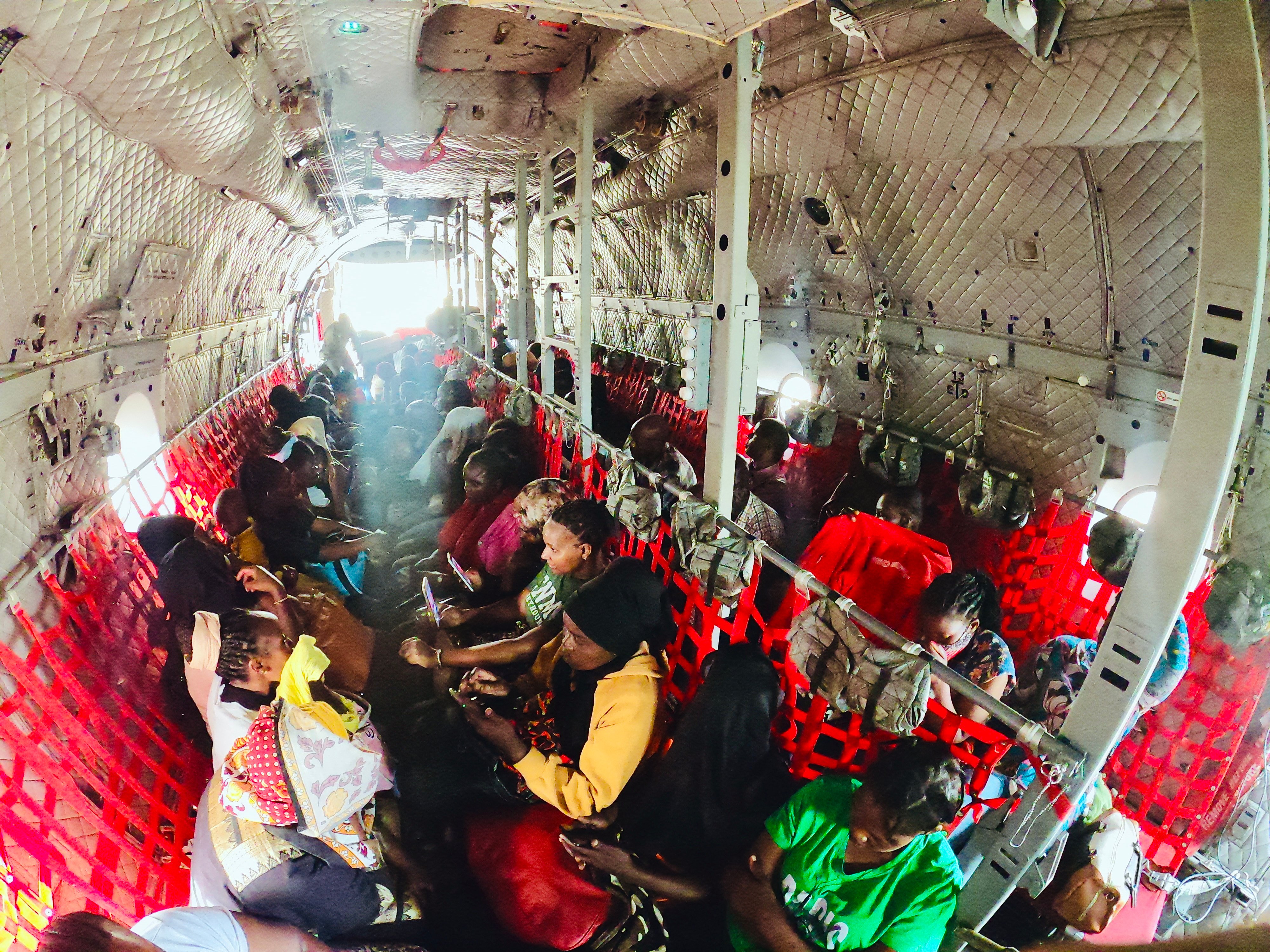
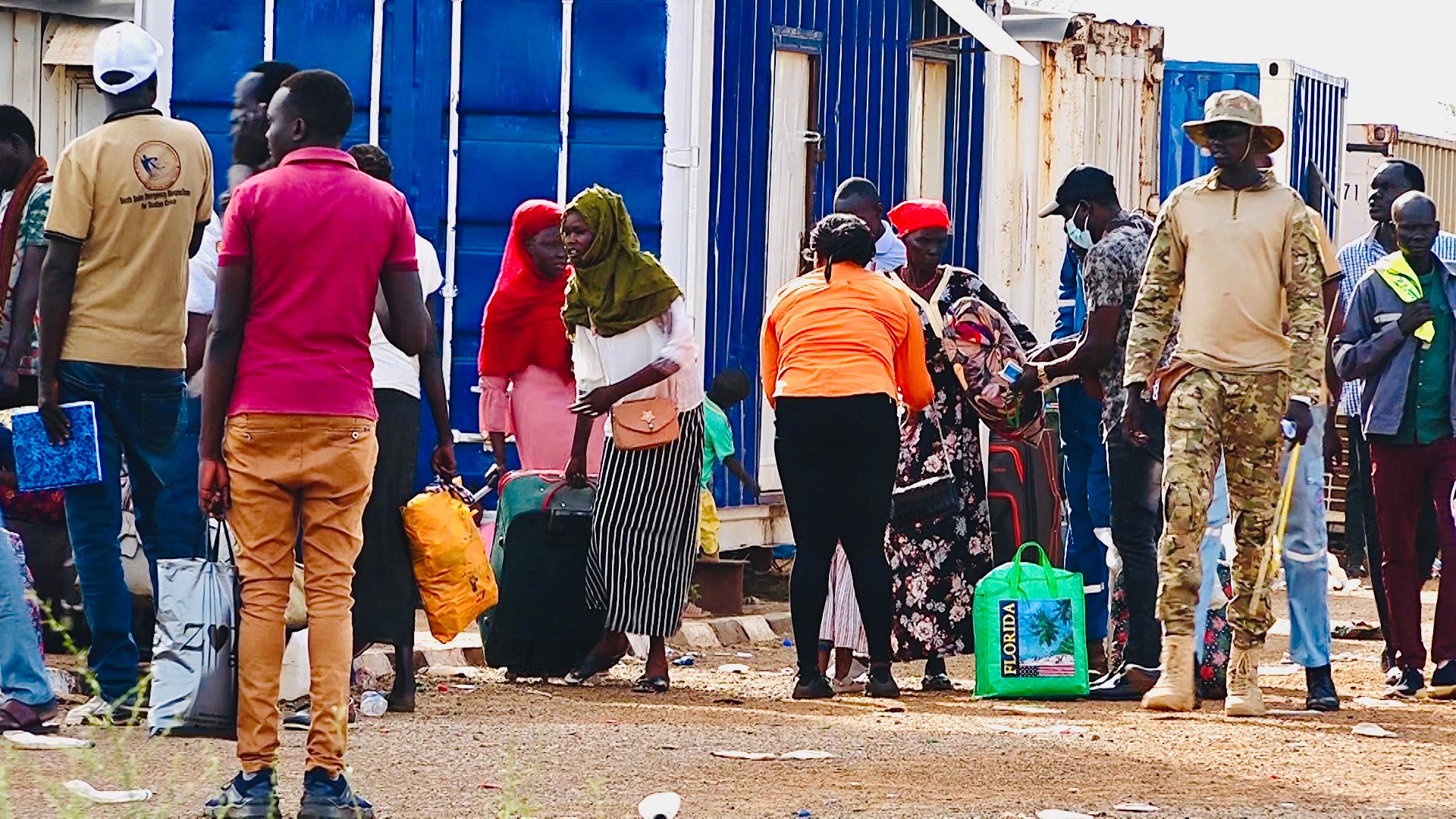
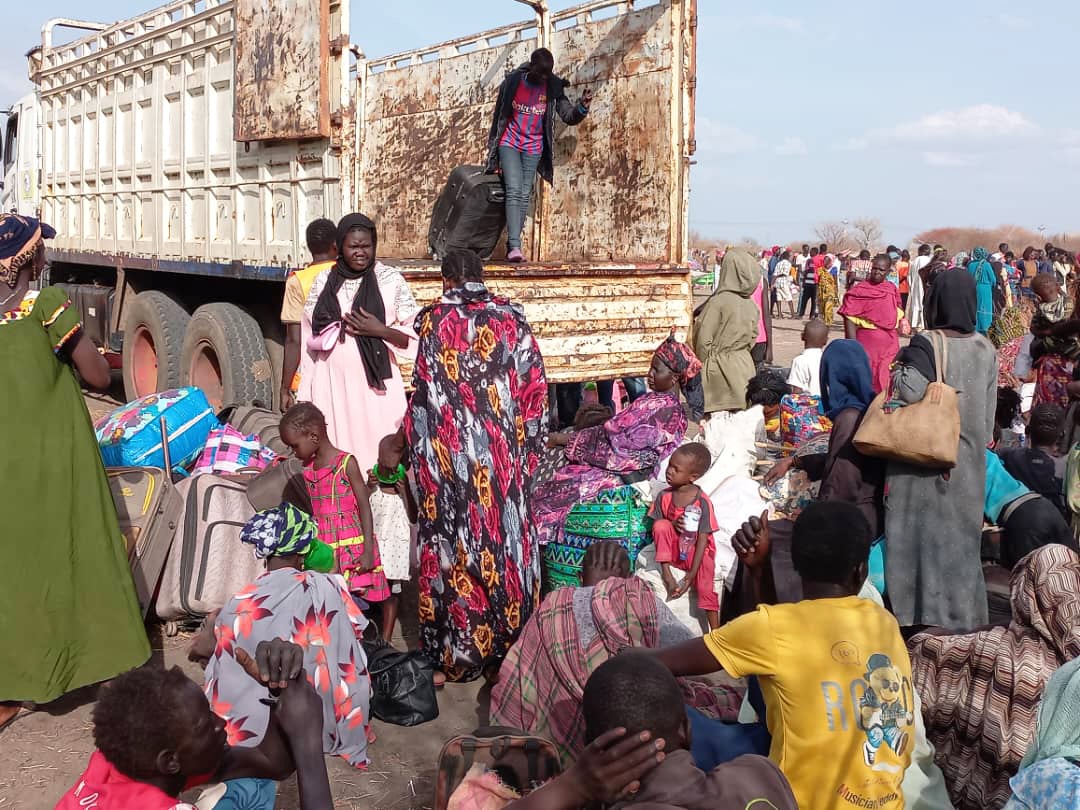
In the week before the fighting broke out, I spent a day in Merowe in the northern part of Khartoum, where the first shot was fired. Returning from visiting the Nubian pyramids, we saw a convoy heading towards Merowe. We could see that the military was being mobilized, so we stepped up our emergency planning at the Plan International office in Sudan.
By the Numbers*
At least 528 people have been killed, including at least five humanitarian workers.
A reported 100,000 people
have fled from Sudan since
the conflict began, with estimates saying that
number can rise to 800,000.
The fighting erupted in Sudan on April 15 but it’s something that has been brewing for quite some time. Things have been spiralling for the past three to four months, so although what has happened has not come as a surprise, the suddenness and extreme nature of the violence in the country has been quite a shock for the Sudanese people.
On April 15, 2023, an armed conflict erupted between the Sudanese Armed Forces (SAF) and the Rapid Support Forces (RSF) in Sudan. This conflict unleashed a heavy humanitarian crisis throughout the country, starting in the capital city of Khartoum and rapidly expanding to several nearby regions.
Over 4,599 people have
been injured.
*as of May 8, 2023
Escape
from Sudan
Preparing to Flee
We ran through different scenarios and developed contingency plans. We scanned critical documents, made sure we had secured documents for our vehicles and paid salaries ahead of time. Staff only had one day to withdraw their funds before the fighting broke out and thankfully, almost everybody was able to do that before the banks closed.
Khartoum, where the main violence has taken place, is a densely populated city of around six million people. As you can imagine, widespread fighting with heavy artillery has been harrowing for the entire population. Some parts of the city where we work and have staff are absolutely devastated*. It's just been horrific and catastrophic for the people who live here.
Since 2021, we've kept stocks of hibernation kits, so although we were confined to our apartments, completely unable to move for a long period of time, we had food and water. Thanks to that, I was able to focus on organizing ourselves and attending coordination calls, without having to worry that
I didn’t have food or water because these things became very scarce, very quickly.
Communication was also a challenge. The mobile network was down for most of the day, and it is still not back to normal today. It's been very difficult to get a hold of my team and they are completely offline except for a few. I have fibre optic internet in my apartment, so I was the only one accessible, able to send emails and attend online meetings. I was lucky – there was no full day when all communications were completely down.
Chaos and Intense Fighting
at the Khartoum Airport
Evacuation planning for international staff members began the first week of the hostilities due to the heightened risk of attack on foreign aid workers. From the start of the conflict, the airport was a scene of intense fighting and was extensively damaged. It became very clear that flying out of Khartoum would be impossible, so our evacuation had to be made by land.
The first week of the conflict was very difficult because the Rapid Support Forces (RSF), who are the militia fighting against the Sudanese army, took over the area where I live. The streets were totally under their command, and the sound of gunfire was absolutely terrifying.
The intensity of the fighting made extracting one foreign national staff member very difficult. We had a few failed attempts where an extraction team got close to his home in Khartoum, but the bombs and rockets forced them back. There was even fighting in the streets. We started to lose hope as it really wasn’t looking very promising that we would be able to extract the international staff member from that part of the city.
We drove non-stop so we needed at least two drivers. We only stopped to take on fuel and for bathroom breaks (mostly in open desert land).
The evacuation itself from Khartoum was intense. We left on Sunday morning; there were over 100 vehicles in the convoy moving approximately 1,500 people, mostly UN staff and their dependents, and nearly 500 international NGO staff and their families. Many organizations had hired buses, but we used our own Plan International vehicle for the four foreign nationals who were being evacuated.
It was very scary. We passed through parts of the city that were occupied by the RSF. These were hot fighting zones, so we drove quickly, often at top speeds. It was strange to see the streets so quiet, especially when we got to the outskirts of Khartoum. No vehicles were driving the other way.
Travelling for 40 hours
in the Hot Desert
Sudan is mostly a desert country, there are no trees to provide shade.
The heat made the journey even harder. There were people in the
convoy with medical conditions, children, pregnant women, so it was
very difficult for many people. We thought the journey would take
around 12 hours, but it actually took between 35 to 40 hours. I’m not
entirely sure how long. It was a very gruelling journey.
When we made it to Port Sudan, we spent three days organizing our
final evacuation. Eventually, we managed to get a place on a
military aircraft.
The aircraft had no chairs and people sat back-to-back on netting
seating, typical of military aircraft. Luckily, it was only a 45-minute
flight to Saudi Arabia. We stayed there for two days until we were
able to catch a flight to Nairobi, Kenya, where
Plan International’s regional office is located.
Having left our homes [in Sudan] on April 22, we arrived in Nairobi
eight days later on April 30. It was a long and exhausting journey
and although I am so lucky to have made it out of the country and
am safe, my heart and my mind is still with my friends and colleagues
in Sudan, as well as the communities and children who are left to
live day in and day out in such a difficult situation.
In Khartoum, our program work has stopped as we cannot operate there safely. In other states, although the fighting has been intense, some of our activities have resumed. We are relocating our country office and have established an emergency response team. We are also working on an emergency response plan and are coordinating with other international NGOs. But we will need more funding to mount a long-term response to support children and their families affected by the crisis.
So far, everyone is okay.
With the help of the regional office, well-being sessions and counselling are available to staff members in Sudan to help them overcome the trauma they have encountered.
For me, the experience has been very hard. Now when I see people in military uniforms, even security officers with Kalashnikovs [automatic rifles], it's absolutely terrifying and I relive everything all over again. But I think everyone still in Sudan, and those that have been lucky enough to leave, are all dealing with these issues."
Eventually, we managed to rescue him and focused on coordinating with the UN [United Nations] on our evacuation. We left our homes and congregated at the UNICEF compound on Saturday afternoon and spent the night there. I decided
to use our own vehicle, after contracting two drivers to drive
us 1,000 kilometres to Port Sudan in the eastern part of
the country.
*Editor’s Note: At the time of publication, we have not received any reports of Plan International staff or sponsored children being directly or severely harmed in the conflict in Sudan.
Even though I am no longer in Sudan and am now based
in Nairobi, I check up on our colleagues there every day, taking stock of where they are, how they are coping and their movements. Ninety-five per cent of our staff are Sudanese,
much higher than most other NGOs.


Eyewitness Accounts
from other Plan International Staff in Sudan
READ MORE
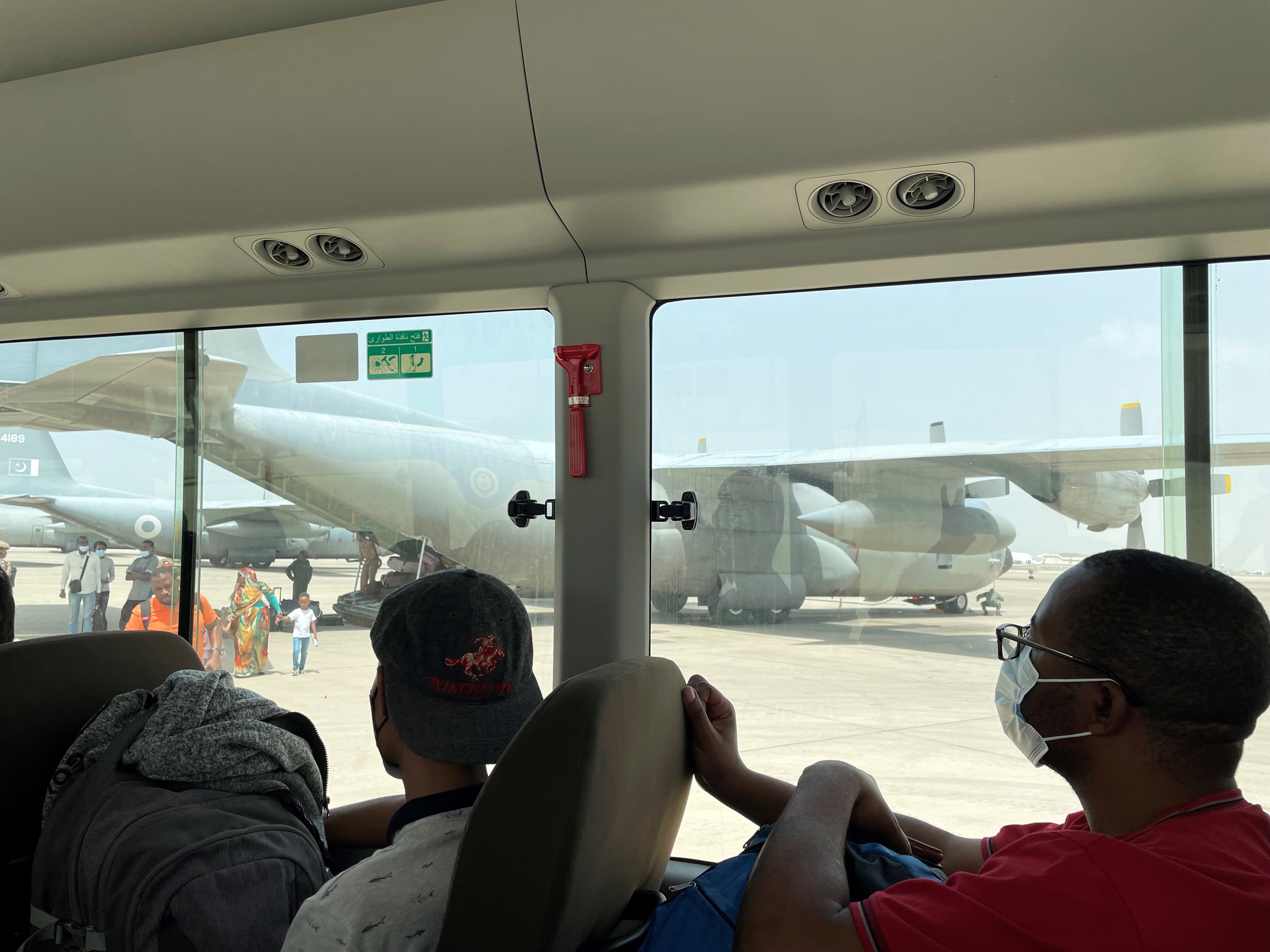
“What is happening in Sudan is unfortunate. The humanitarian needs are growing every hour – children and young people have been stranded outside unable to reach their homes. Homeless children, those living on the streets, are in dire need of support. I am involved in coordination work with other stakeholders, but this is limited to information sharing. The security situation does not allow me
to do more, even though I am in Sudan to support these very children – I can't do more.
– Humanitarian worker, Sudan
"Given the circumstances, it is a tough balancing act – economizing on internet, water and electricity usage, trying to stay positive emotionally, keeping an eye on the news to get more information, checking on my colleagues who reside in locations that are being shelled, and ensuring my family back home has information about my safety. I hope the situation improves soon to enable us to resume delivery
of our services.”
– Humanitarian worker, Sudan

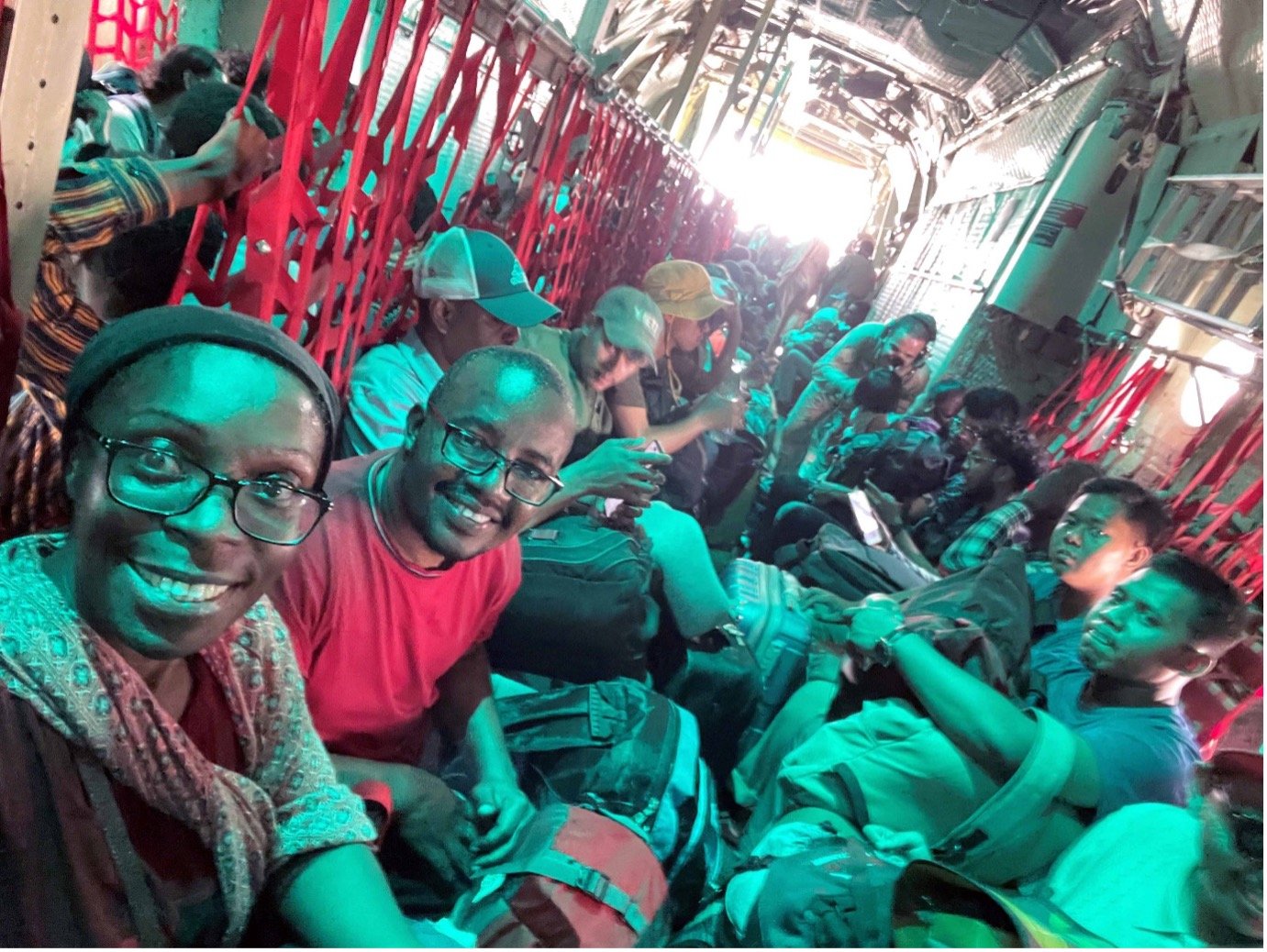
Mwape Mulumbi, Plan International’s Country Director in Sudan spent eight days fleeing hostilities in Sudan. She and her colleagues were relived to eventually make it onto a military plane with evacuees from Sudan travelling to Saudi Arabia.
As the conflict in Sudan intensifies, a growing number of refugees, returnees and third country nationals continue to cross into neighbouring countries – South Sudan, Egypt and Chad – with families using buses and trucks and paying hefty fees to flee the violence in their country.

"
"
"
Learn how children,
especially girls, suffer
the most in times of emergency and when food is scarce.
Read More about former child refugee Nhial Deng’s experience growing up in one of the world’s largest refugee camps in Kenya.
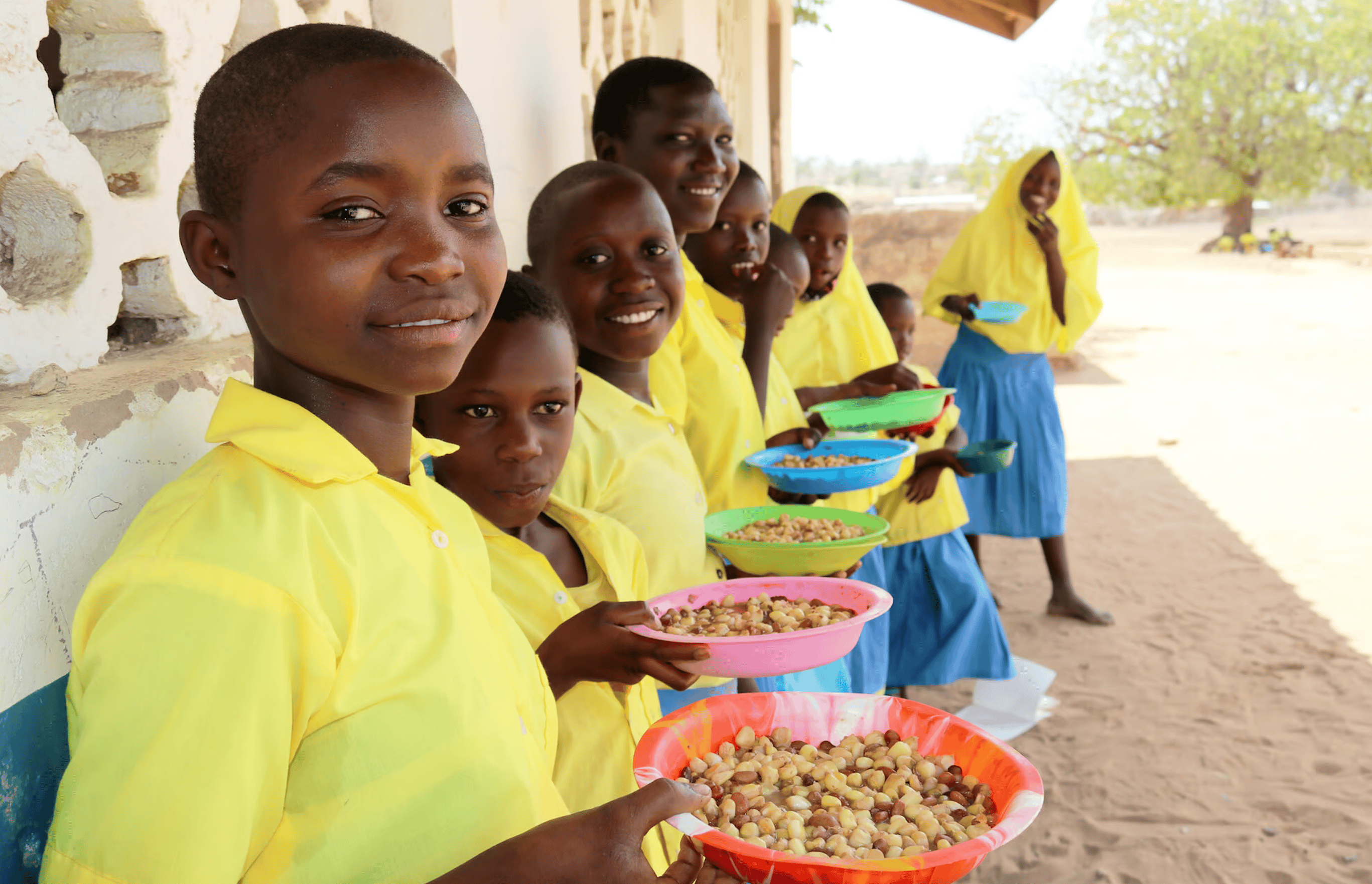
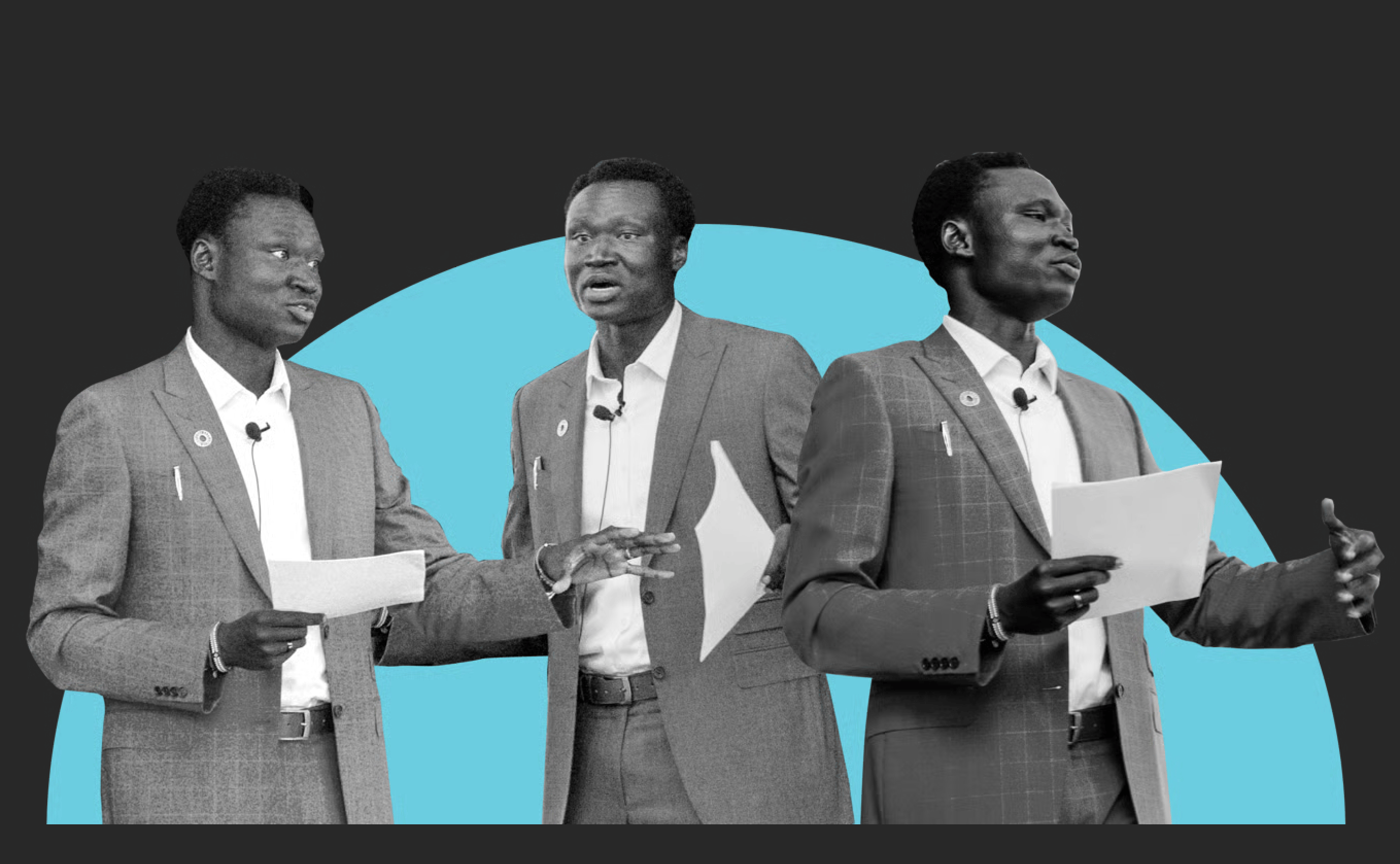
Read more
Read more

